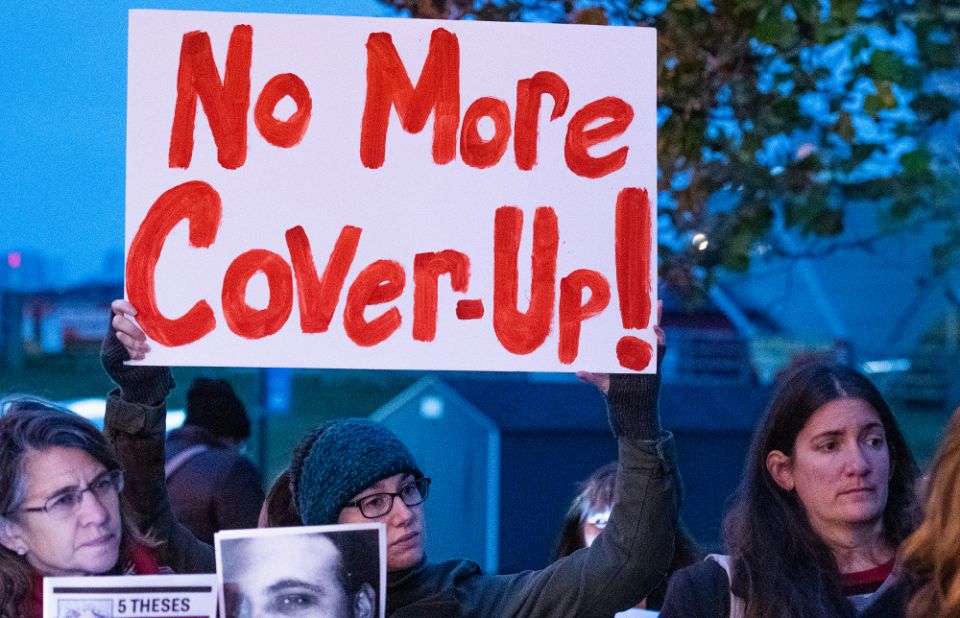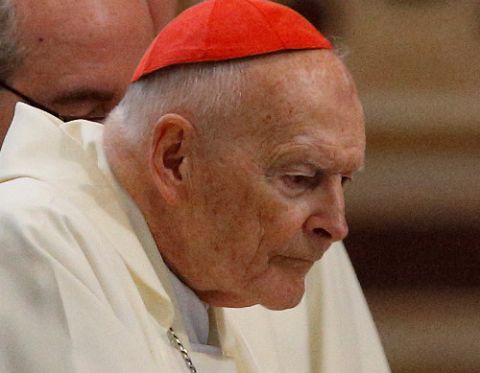Year in Review: US Bishops Take on Abuse, Cover-ups
By Carol Zimmermann
2018 will no doubt be remembered as a dark time for the U.S. Catholic Church. Catholics felt betrayed by church leaders accused of sexual misconduct and cover-up revealed this summer and this cloud still hung over the church at the year's end. In June, allegations were made against then-Cardinal Theodore McCarrick, retired archbishop of Washington, accused of sexually abusing a minor almost 50 years ago and having sexual contact with seminarians while he was a bishop in New Jersey. A month later, Pope Francis accepted McCarrick's resignation from College of Cardinals and suspended him from public ministry, ordering him to a "life of prayer and penance" until the accusations against him were examined in a canonical trial. The archbishop, who has denied the allegations, now lives in a Capuchin Franciscan friary in Victoria, Kansas. Since these allegations came to light, Catholic laity and church leaders, including bishops, have been asking who knew about the archbishop's alleged misconduct and how was it possible for him to move up the ranks in church leadership. Open letters to the pope asked him to investigate what happened and a fury of speculation was fueled by unsubstantiated allegations made by Archbishop Carlo Maria Vigano, former papal nuncio to the United States, who accused the Vatican hierarchy and Francis, in particular, of being complicit in covering up accusations against McCarrick. Amid church turmoil over McCarrick, the church was dealt another blow in mid-August with the release of a Pennsylvania grand jury report covering 70 years of abuse allegations in six of the state's Catholic dioceses, starting in 1947. The report detailed allegations of abuse by 300 clergy and other church workers and involving 1,000 minors. It also claimed a church cover-up of abuse in some instances. The report particularly shined a spotlight on Washington Cardinal Donald Wuerl in reporting a mixed picture of how he handled some abuse cases when he was Pittsburgh bishop from 1988 until 2006.
Amid renewed calls for the cardinal to resign, Wuerl, who had submitted his resignation two years earlier after he turned 75, as required by canon law, met with the pope about stepping down. Francis accepted his resignation in mid-October, while keeping the now-78-year-old prelate on as apostolic administrator for the Archdiocese of Washington until a successor archbishop is named. Another result of the Pennsylvania grand jury report was that 13 states and the District of Columbia announced their own investigations into church records. Several dioceses also started publicly releasing names of priests credibly accused of child sexual abuse, with most allegations decades old. Although the Pennsylvania grand jury report fueled strong outrage, it also raised questions about its intentions, especially since it focused on what happened decades ago rather than on the changes in church protocols on addressing abuse that have occurred in more than two decades, said Frederick Thieman. The former U.S. attorney for western Pennsylvania has served on the Independent Review Board in the Pittsburgh Diocese for 20 years. While a full accounting of child sexual abuse "is a story that needs to be told," Pennsylvania's use of grand juries that publicly disseminate accusations, but bring no indictments, can be problematic, he told the Pittsburgh Catholic, diocesan newspaper. "Unlike a trial, there is no opportunity for cross-examination and very limited opportunity for those accused to challenge evidence or present evidence of their own," he added.
|
.
Any original material on these pages is copyright © BishopAccountability.org 2004. Reproduce freely with attribution.

